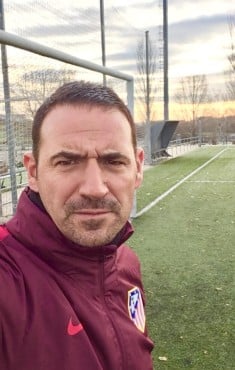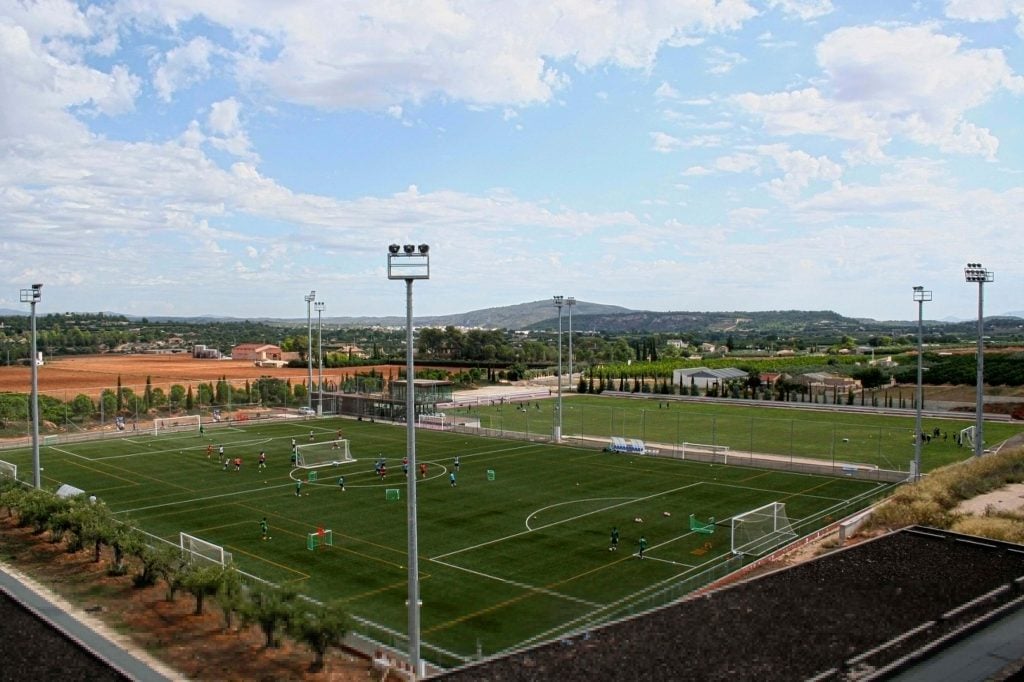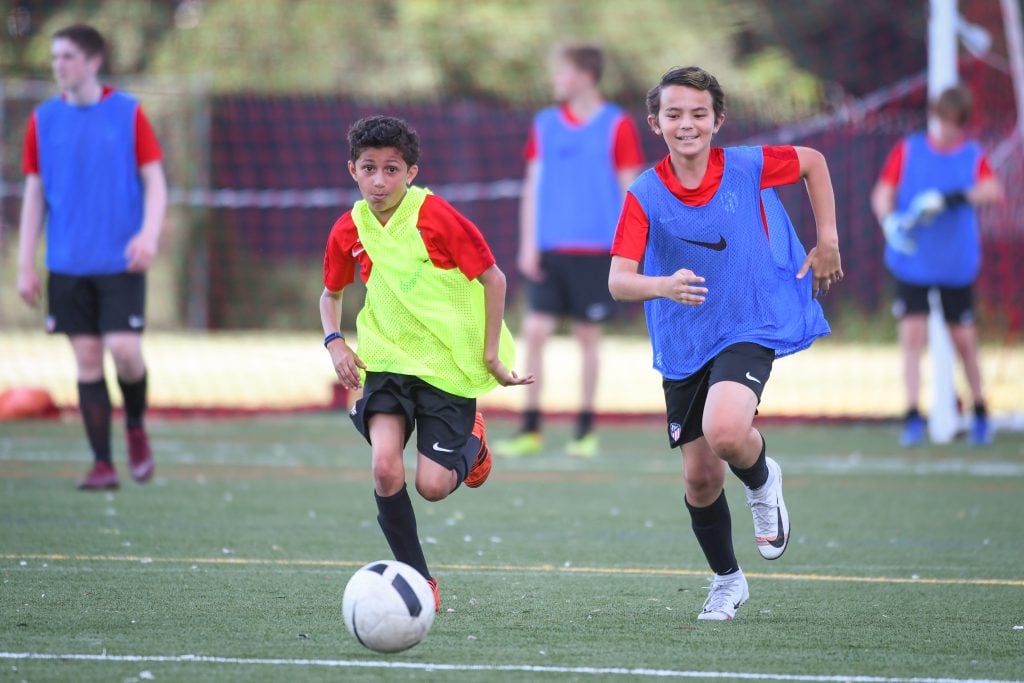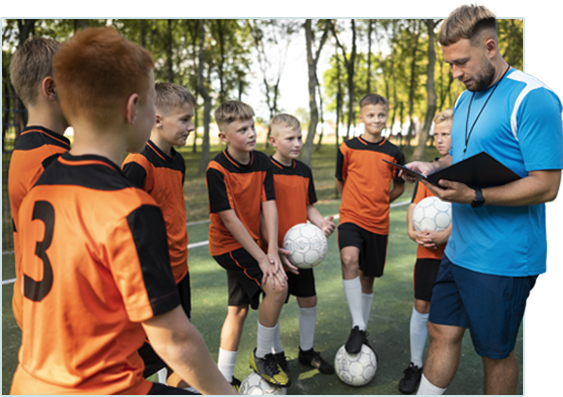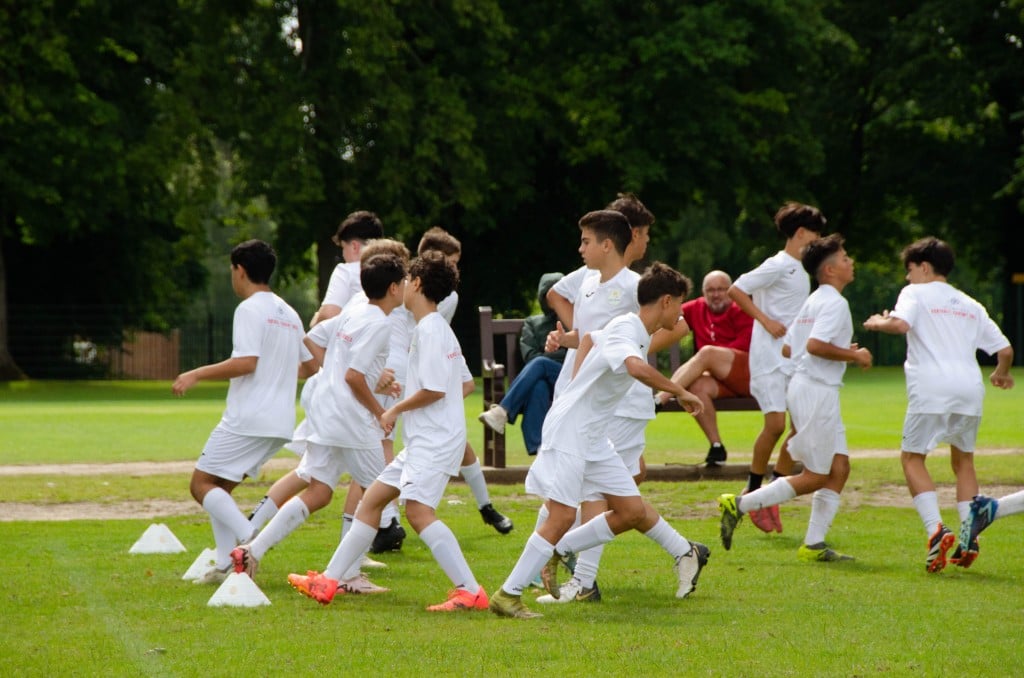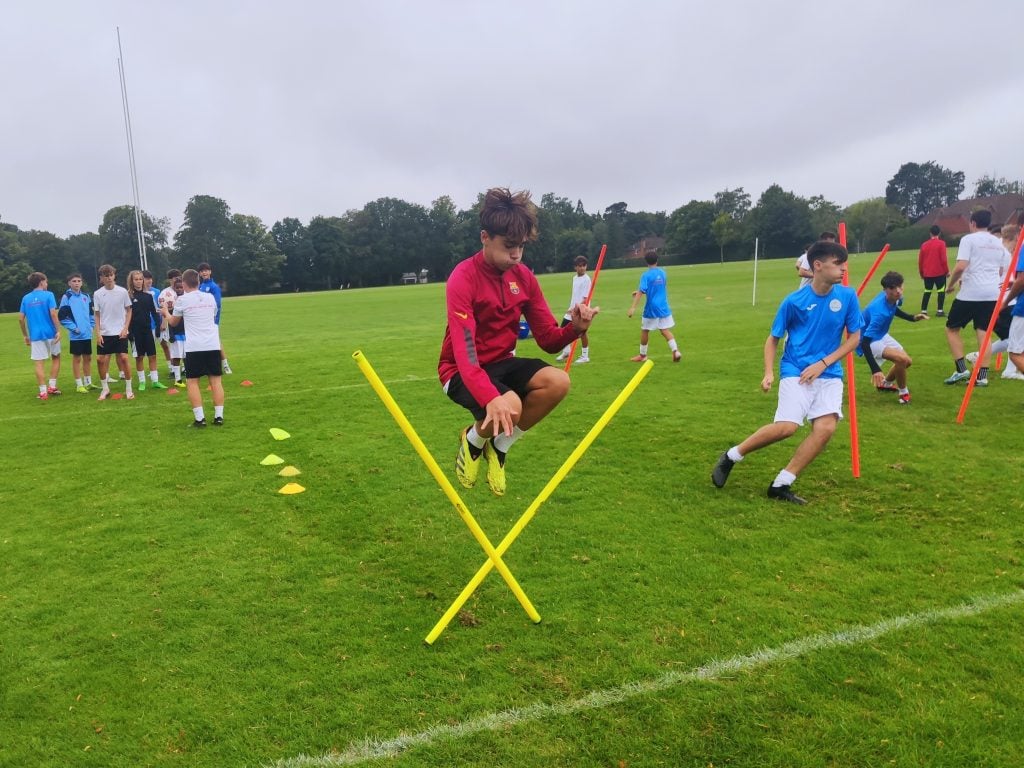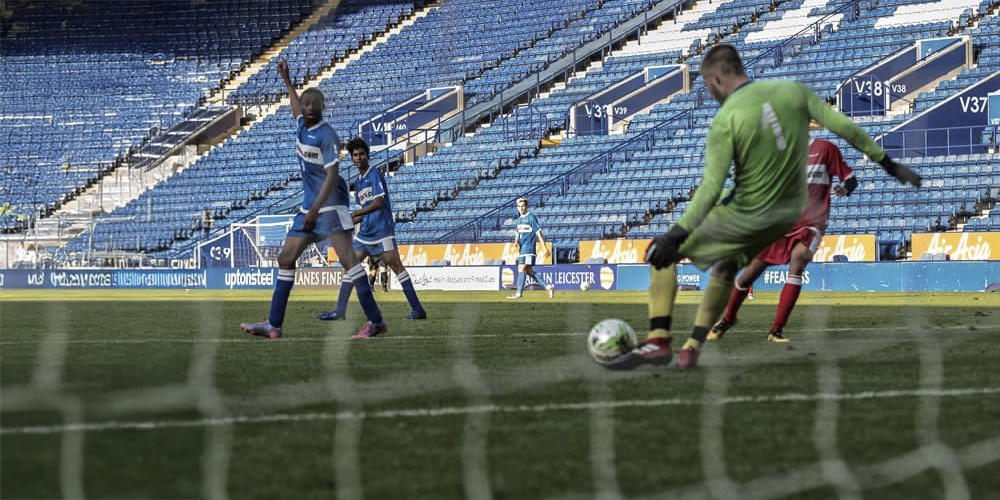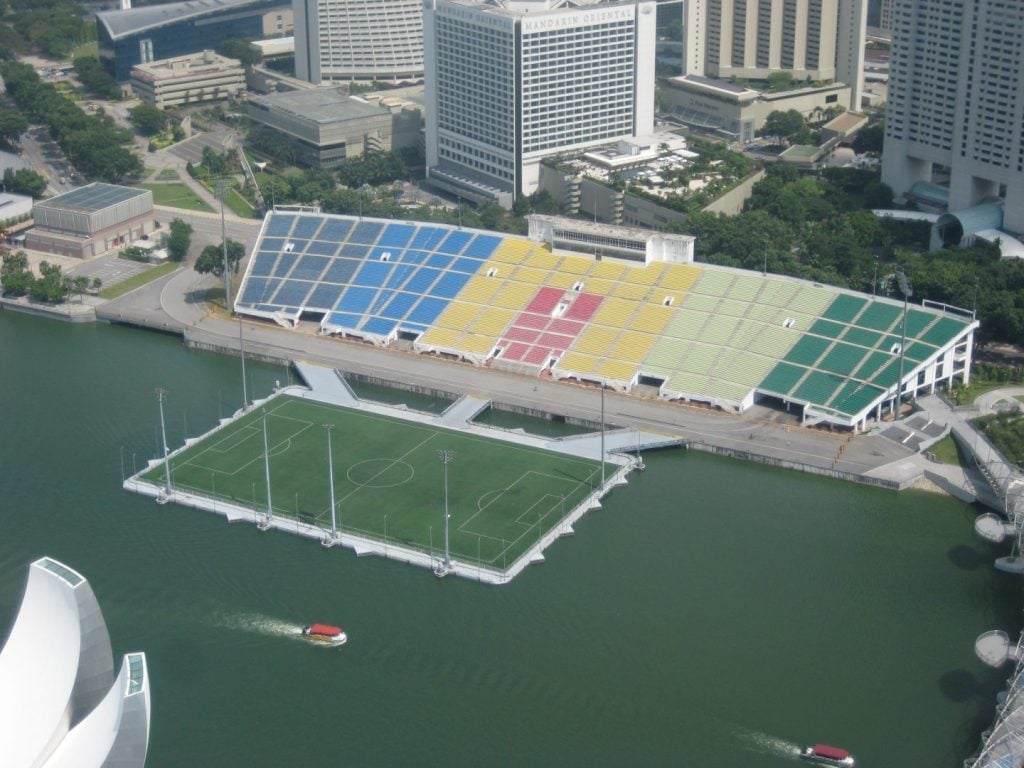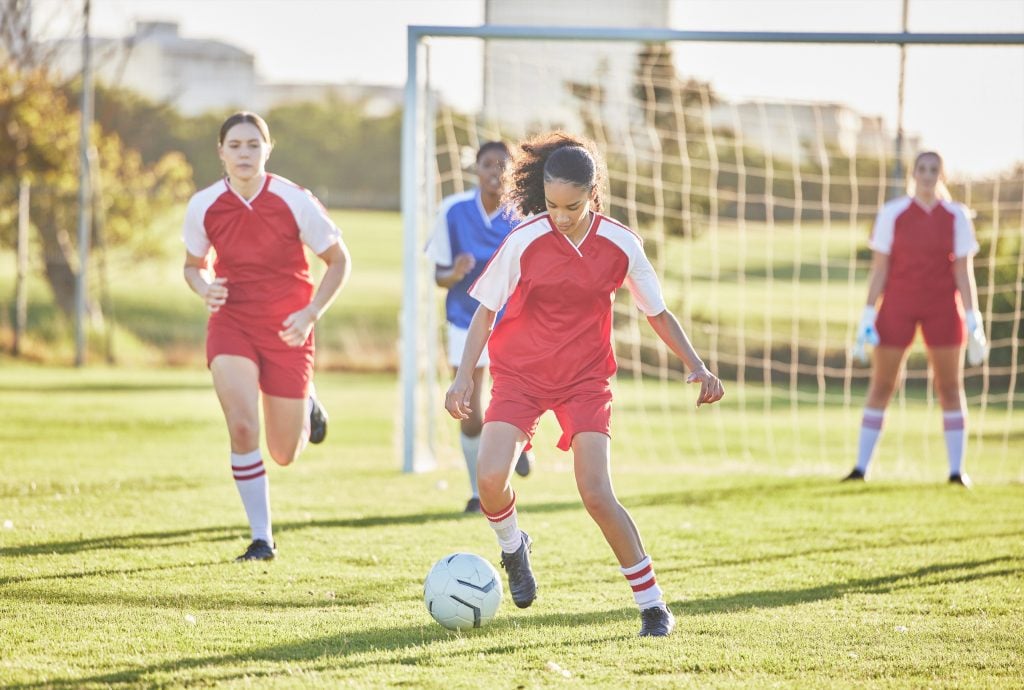Alberto Ruiz is the coach of the Atlético de Madrid (cadets) and has extensive experience as a soccer coach, mainly in Spain, although he has also worked three years in Puerto Rico. After working for the Guadalajara CD, he was hired by the Atleti, his beloved club, where he began his passion for soccer and has been coaching for a year and a half.
In this interview he speaks about his experience working with youngsters, the values he tries to bestow upon them and about soccer athletes he considers an example to follow.
Hello Alberto, you have dedicated most of your career to coaching youngsters and today you are coaching the Atlético de Madrid cadets. What satisfies you the most when you work with them?
How they amaze me every day. They are like sponges. They absorb concepts and apply everything you teach them quite easily. They watch a lot of soccer and this helps them a lot. They spend their days with a soccer ball at their feet and they are very intelligent. My work is wonderful because I am surrounded by these youngsters. The effect I have on them and the players is quite high. I push and help them and see them grow. To be a soccer coach is not just about coaching or making the lineup, it´s much more. You need to be a trainer. When you are obsessed to win, you lose objectiveness and values, which are so important during this age. Training and teaching is not the same thing.
What is most complicated?
To achieve a united group that help, love and watch out for one another. They need to have fun and consequently play better. They need to be a block. The key is in the unity and the locker room.
Nutrition is important for youngsters during their growing years and so is practicing a sport regularly. Do you give them guidelines about what to eat?
Of course, during the classes on nutrition we give them tips and guidelines about what to eat each day. To eat well, hydrate and rest are part of what we call “invisible training” and it´s extremely important to perform well in any sports activity. They need to prepare the body for proper nutrition at an early age.
What type of soccer do you like for your teams?
Soccer is divided in two: those who want the ball and those who don´t. Those who wait in the background lack initiative, control and dominance and will always suffer before teams that want the ball and move with rhythm. I need to have the ball and grow along side it, subdue the opponent, generate superiorities and prioritize in the understanding of the game: attack and defend well, manage offensive and defense transitions. We try to play well and offer a show.
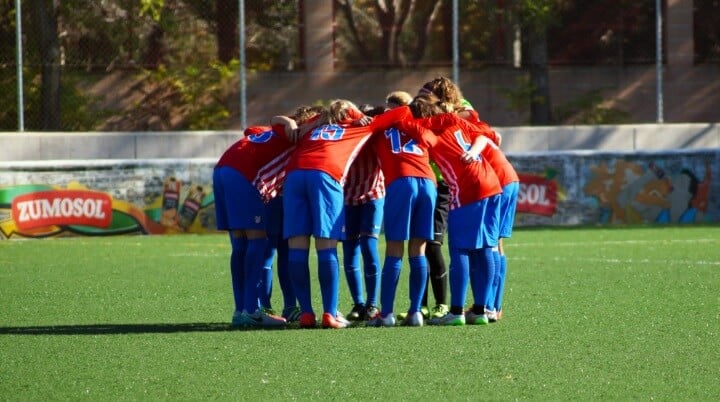
What values do you transmit as a coach to your players? We know that the Atlético, in the last years, Simeone has marked principles.
The Atleti is right now among the best and greatest competing team in the world. Their success is to work, work and work. I believe strongly and with conviction in what I do in order to transmit this to the players. As a coach, I believe in having a huge influence to move players, increase their confidence, performance and compromise. Make players believe to never lose hope and never give up, even if they are losing by goals. This aspect is key so they see soccer as a team sport and that each one needs to sacrifice for the team’s interest. No one is a substitute of anyone else but a complement of each other.
To bet on soccer 100% leaving behind school is without a doubt a risky decision. What advice would you give kids who dream of being professional soccer players knowing that only a few will make a living in the long term?
To dream of being a professional soccer player is wonderful but also difficult. Only a few make it. The first thing I tell them is to focus on school, that should be their primary objective and then they can play soccer. It´s easy to say but not all of them listen. I try to motivate them through the soccer sport and think further. There are more important things in life than just soccer.
What are the main differences in coaching kids and adults?
Kids receive education in a long learning process where the results don´t matter and adults compete to win and demonstrate the quality with greater or less opposition, but with opposition. But with kids as well as adults, it´s always important to get to know the players in order to help them grow. And you must love them; because we help those we love much better.
What was your career before you became a coach?
I basically tried to get educated. At first I took coach title courses (Level 1, 2 and 3) and then the UEFA PRO, which entitles you to train any team internationally. And then I had to fly solo. Teach myself, watch, listen, ask and keep the good and let go of the rest. I love to watch any category training sessions because I always learn something and can draw conclusions that help me grow. And today I am where I always wanted to be, with the Atlético de Madrid. My club, here I saw soccer for the first time, I learned values, accepted winning and losing, suffered and won with effort always giving it my best. I worked with the CD Canillas, went through the Real Madrid recruitment, worked three years in Puerto Rico, which helped me raise the club from nothing in a country with very little soccer tradition, I was hired by the CD Guadalajara (2ª Division B) as the Soccer Base Director and now I am happy with the Atlético cadets.
What would you advise soccer players who want to redirect their coaching career?
The first advice would be to believe in what they do, if a player is able to reach an optimal level of play and training, he will do it again. You need to be a hard worker, a winner and push yourself to be better each and every day gaining the confidence of the rest of the team and convincing your coach. Everything is possible if you want it bad enough.
You have also been a “scout”, are you proud of a new discovery?
The year I was a “scout” I saw a lot of good players, but they were too young, under the age of 12. I don´t remember right now anyone who stood out. But I saw a lot of good ones. To scout well you must have a special talent. Know what to look out for and evaluate who can have a long-term future.
Lastly, do you think it´s important that players transmit a good image in the games given their influence and implication?
Image is everything among players and coaches. They are constantly in the spotlight. It´s true that some unfortunate situations have occurred in and out of the field. There are millions of kids out there that have a poor image of some professionals and this needs to change. The world shouldn´t have to see certain attitudes. To be a player you have to be more than just a player. Let me explain; players have a huge responsibility with values, respect towards their teammates, their rivals, the referees and the public.
What soccer athlete do you consider to be an example for future generations?
A player that sets a good example every day is Andrés Iniesta. God wanted him to score a goal for all of us during the South Africa World Cup and I am sure it was for a reason. He has it all. He uses his generosity to reach the top. He is a quiet leader who sets a precedent. Soccer is where it is today because of Iniesta. His personality respects soccer and knows perfectly well what he represents.
Can you name an exceptional coach?
A coach has a very important job. He decides the club´s strategy, bet it good or bad, projects methodology training, physical and tactical aspects… and has an enormous influence on the players and the clubs passion. So for his concept, ideas and his game style, I think of Guardiola who is a benchmark and a revolutionary of modern soccer. For his influence, ambition, conviction and sacrifice, I think of Simeone, an example for me and a model to follow. His desire and determination motivate the players enormously. They are two great coaches.
You can follow Alberto Ruiz in his adventure as coach of the Atlético de Madrid Cadets on his Twitter: @AlbertoRuiz_.

